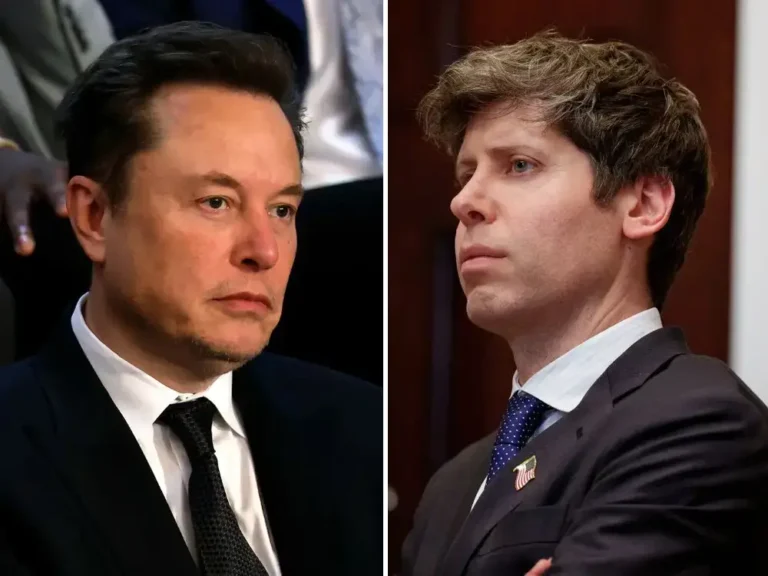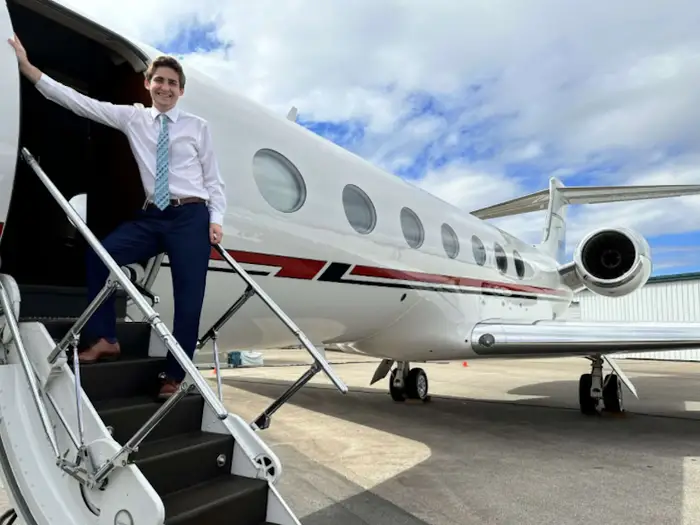‘I just wanted to take a break’: Some early-stage founders are putting their startup dreams on hold in the tech downturn to try corporate life

Mehak Vohra has been a startup founder ever since she dropped out of college in 2016. She started Jamocha Media, a media and personal-branding company, and then SkillBank, an online marketing training program. But earlier this year she shut down SkillBank and joined a bigger tech company as its head of marketing.
It’s the first time in her life she’s an employee rather than the boss.
“I just wanted to take a break,” Vohra said. “It’s almost relaxing to have someone else tell me what to do.”
Upwards of 3,200 venture-backed startups went out of business last year, a number expected to be even higher this year as venture-capital fundraising tumbles to its lowest level in nearly a decade, according to PitchBook data. That has early-stage startup founders who founded companies during the free-flowing boom cycle that ended in 2022 rethinking whether they want to be founders after all.
“The idea of being a founder is sexier before you’ve been a founder,” said Ishita Arora, the founder and CEO of Dayslice, a scheduling tool for services business that raised $6 million in funding.
In December, seeing the company wasn’t achieving the hockey-stick-like growth VC investors demand, she closed Dayslice and gave back the remaining cash to investors.
.
“I have a lot of founder friends, and almost all of them are miserable and fantasize about what it would be like to be an employee,” added Arora, who earlier this year joined Instrumentl, a platform for nonprofits, as one of more than 50 employees. “In terms of sleep quality and enjoying my weekends, it’s definitely easier to be an employee.”
The four founders B-17 spoke with for this story said they were enjoying a higher quality of life and didn’t miss the sleepless nights or never-ending pressure of running a startup.
“There’s just a lot more work-life balance,” Vohra said. “I feel a lot less stressed. I have a much bigger social life now, and I don’t feel bad about going out.”
They also enjoy considerably more pay, making at least twice as much in salary as they did when they were founders, when most of their compensation was tied up in stock.
“Now I can build my savings and treat myself more,” Vohra said. “It’s small things like being able to pay to go get a massage.”
Founders also said they didn’t miss the isolation of running a company.
“I think it can be really lonely,” said Jacek Prus, who started two sustainable-food startups in San Francisco. “You really are the only person that’s at that level making those decisions, and people look to you for those decisions.”
Prus joined Farmed Animal Funders, a decentralized funding collaborative, as its senior director of development earlier this year, deciding that he could make a bigger impact as part of a larger organization.
“If someone is mission-oriented, it is always good to ask if you are starting the company because you really have a compelling idea, or is it because of an ego thing?” Prus said.
Still missing being a founder
For founders accustomed to the speed and nimbleness of running a startup, joining a bigger company can sometimes be boring and frustrating, leaving them wanting to “pull their hair out,” said Sri Chandrasekar, a managing partner at Point72 Ventures.
“When you’re used to total autonomy, a large company can feel like everything is slow, with decisions requiring committees and things they could have done on their own they now need buy-in for,” Chandrasekar said. “I see many of those ‘born entrepreneurs’ come back to the founder side sooner or later with a renewed vigor that they don’t want to work for anyone but themselves again.”
Despite all the perks of not grinding away into the early-morning hours as a startup founder, most B-17 spoke with said ultimately they missed the thrill of their old life and planned to start another company after getting some rest and gaining new skills and when the funding environment turns more favorable.
“I love building something that I see a lot of people using, and I love having complete ownership over that, and I’ve had to let some of that go to join another company, but I’m looking at everything as being a learning experience,” Vohra said. “I’ve just never seen myself wanting to be a part of a bigger corporate machine. It’s just not exciting to me.”
Another founder who recently started working at a fintech company as part of his startup being acqui-hired said he missed the adrenaline rush and challenges that came with running a startup and found corporate life boring. (He declined to be identified because the deal has not been announced.)
“It feels very comfortable,” the founder said. “I could see how people would get trapped and just chill here forever.”
He deliberately tries to keep his relatively frugal lifestyle the same — splurging on only a nice watch — even though he now makes nearly three times as much in salary.
“I don’t want to get stuck in the comfort of making this much more money,” the founder said. “I want to start more companies.”






